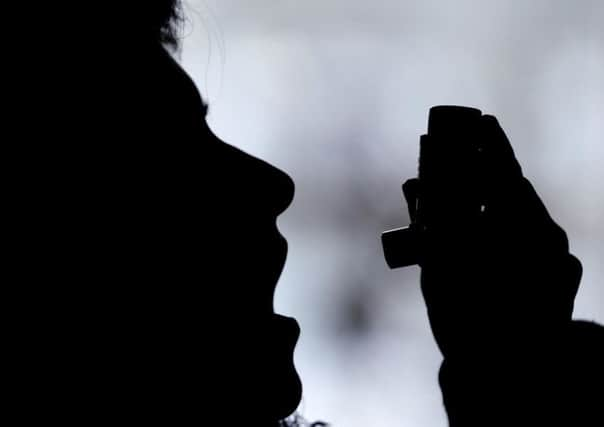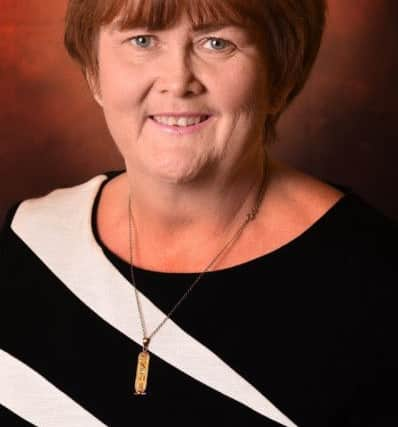People in South Tyneside '˜among those in country most likely to end up in hospital with asthma problems' says new report


Asthma UK’s report On the edge: How inequality affects people with asthma found that 303 people in South Tyneside Clinical Commissioning Group (CCG) area were hospitalised for asthma in 2016/17.
Researchers found that people in the borough’s CCG are eighth most likely to be admitted to hospital because of their condition in England.


Advertisement
Hide AdAdvertisement
Hide AdThe charity argues that social inequalities could be to blame, with South Tyneside classed as the second most deprived area in the North East.
Bosses say that inequalities mean that people in the poorest areas are more likely to be exposed to worse air pollution and higher smoking rates, have challenges accessing care, a lower awareness of asthma management, and have poor housing conditions.
Health bosses on South Tyneside say that hospital admissions for those suffering with asthma have fallen since the date was published while council bosses say they have improved living conditions of 15,000 tennants in the area.
Earlier this year, Asthma UK also revealed that 62% of people in the North East – a figure of 111,000 – are not receiving basic asthma care.
Advertisement
Hide AdAdvertisement
Hide AdThis includes having a yearly review with their GP or asthma nurse, being given a written asthma action plan and having their inhaler technique checked.
Asthma UK is now calling on NHS England, the Government and councils to tackle inequalities for people with asthma by ensuring there is sufficient funding for people with asthma to get the care they need.
Dr Samantha Walker, director of research and policy at Asthma UK, said: “It is truly shocking that people in some areas are not only struggling to make ends meet but if they have asthma they are more likely to end up in hospital or die from an asthma attack.
“NHS commissioners in South Tyneside need to tackle health inequalities by ensuring there are enough resources so doctors and nurses can provide basic asthma care.
Advertisement
Hide AdAdvertisement
Hide Ad“City mayors and local councils also need to take steps to reduce air pollution, ensure good quality housing and fund stop smoking services.
“This should also be a priority for central government and NHS England.
“Asthma UK is calling for NHS England to ensure that their upcoming NHS Long Term Plan commits to investment in data driven technologies to help people with asthma manage their symptoms and improve access to treatment.”
Matt Brown, director of operations of NHS South Tyneside Clinical Commissioning Group, said: “Since this study was completed in March 2017 our GPs have been looking closely at their own data to improve management of respiratory diseases and ensure that patients with asthma are getting the correct asthma care.
Advertisement
Hide AdAdvertisement
Hide Ad“Managing your own health and self-care is central to people maintaining good lung health particularly if they have an existing respiratory condition.
“This is about clinicians providing support and education to give patients confidence and improve their self-care and symptom management skills.
“GPs are ensuring that asthma patients get yearly asthma reviews, correct medication and educating patients on inhaler techniques.
“The correct use of inhalers reduces exacerbations and can be lifesaving.
Advertisement
Hide AdAdvertisement
Hide Ad“As part of the local Health and Wellbeing Board, the CCG and Council are also driving improvements through reducing health inequalities, reducing smoking rates, improving air quality and housing.
“Hospital admissions for asthma have decreased significantly since this data was published.
“However we would always advise patients with asthma not to ignore worsening symptoms. If at any time you are concerned, make an appointment with your GP.”
Councillor Tracey Dixon, lead member for independence and wellbeing at South Tyneside Council, said: “Despite reduced levels of funding from central government, we remain committed to working with our partners to take action to reduce the health burden of social inequalities in our communities.
Advertisement
Hide AdAdvertisement
Hide Ad“Encouraging people to stop smoking is a core priority in South Tyneside.
“Overall smoking prevalence has decreased and is now currently 18.4%.
“While around 80% of mums-to-be do not smoke and 65 per cent of children live in smoke-free homes in South Tyneside we are committed to improving quit rates still further.
“We have improved the living conditions of 15,000 tenants through the Decent Homes work.
Advertisement
Hide AdAdvertisement
Hide Ad“We recognise the importance of air quality in helping to reduce health inequalities and are reducing traffic congestion and emissions through major road improvement schemes, such as at the Lindisfarne and Arches junctions. “Through the promotion of electric cars, as well as cycling and walking incentives, we hope to improve air quality further over the coming years.”